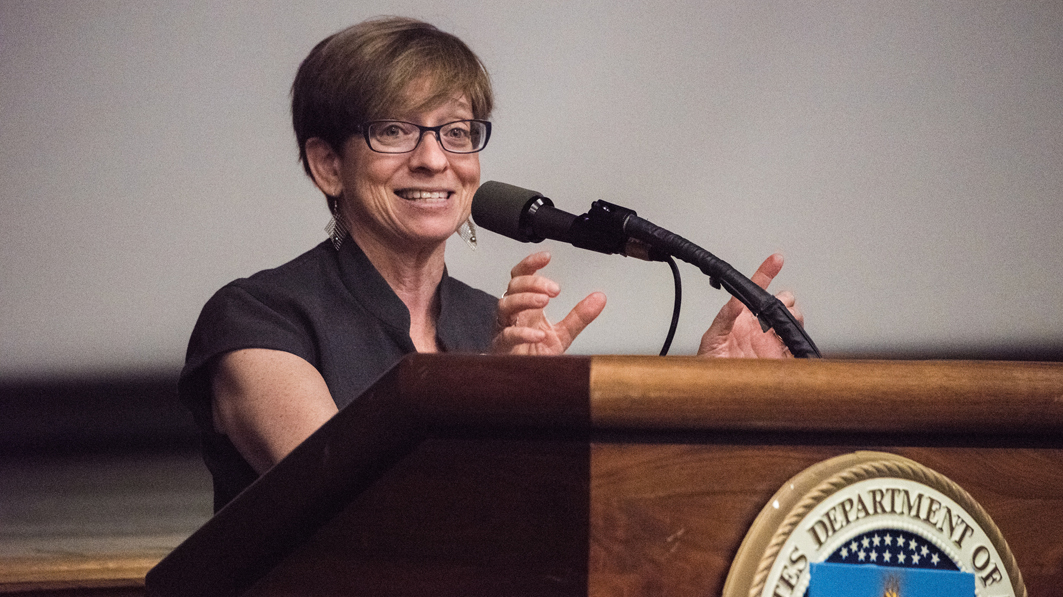As the new 116th Congress opened its session on January 3, Equal Employment Opportunity Commissioner Chai Feldblum tweeted her farewell as both her current term, as well as her re-nomination by President Trump, expired.
That’s a good result for those concerned with religious liberty, agency overreach and the rule of law.
A little background is in order. The Equal Employment Opportunity Commission (EEOC) is an independent federal agency charged with enforcing the nation’s employment non-discrimination laws, known as Title VII of the Civil Rights Act of 1964. It protects the categories of race, color, religion, sex and national origin.
“Sex,” as Congress contemplated in 1964, meant male or female, but Title VII was passed specifically to protect women. Not men who think they are women. Not homosexuals or lesbians. Since the 1990s, LGBT activists and political supporters in Congress have attempted to pass the Employment Non-Discrimination Act (ENDA), which Feldblum helped write, but have failed. The current version of ENDA would add “sexual orientation” and “gender identity” to federal non-discrimination law.
Unsuccessful in Congress, ENDA supporters sought to redefine “sex” in Title VII via two other methods: (1) the courts; and (2) federal agencies – like the EEOC. Effectively furthering both goals, President Obama nominated Georgetown law professor Feldblum in 2010 to fill a vacancy on the 5-person EEOC Commission. The Commission not only makes “policy” for the agency on what types of cases to pursue in the courts, but often acts as a judicial body itself in certain employment cases.
Feldblum has been outspoken in her advocacy for LGBT issues. She has guided the EEOC on a course of using the courts as well as its own “guidance” letters to coerce and compel employers to redefine “sex” as “sexual orientation” and “gender identity” for purposes of Title VII. By getting various federal courts to agree with this new interpretation of “sex discrimination” under Title VII, Feldblum and the EEOC have effectively undermined the legitimacy of Congress and ignored the plain meaning and original understanding of the 1964 Civil Rights Act’s application to sex discrimination.
Inevitably, the elevation of sexual orientation and gender identity to protected status under federal law produces conflict with religious employers, something Congress clearly understood when it chose not to pass ENDA. The EEOC has already been successful in getting the courts to participate in its end-around of Congress. There’s a petition at the U.S. Supreme Court right now from the religious owner of a Detroit area funeral home who didn’t want his grieving clients to be forced to deal with a male employee dressed as a female. The owner won at the trial court level, lost at the 6th Circuit U.S. Court of Appeals, and now has asked the Supreme Court to weigh in.
Hopefully the high court will do so, and reject the EEOC’s heavy-handed tactics in going behind Congress’ back in order to achieve its own policy goals.
But there is no reason to double-down on the EEOC’s misbehavior by re-nominating Feldblum to another term as EEOC commissioner, which is what President Trump did last year, in a 3-nominee “package” deal designed to garner Democratic votes for the confirmation of all three. Federal law requires the President to appoint EEOC commissioners, but no more than three (of the five total commissioners) can be from the same political party.
Fortunately, Senator Mike Lee and others opposed Feldblum’s re-nomination long enough to force her term to expire on January 3.
Although the President needs to fill three vacancies on the Commission, one of which must be a Democrat, there is no reason to choose one with a track record of anti-religious hostility and an agenda designed to ignore the will of Congress.






